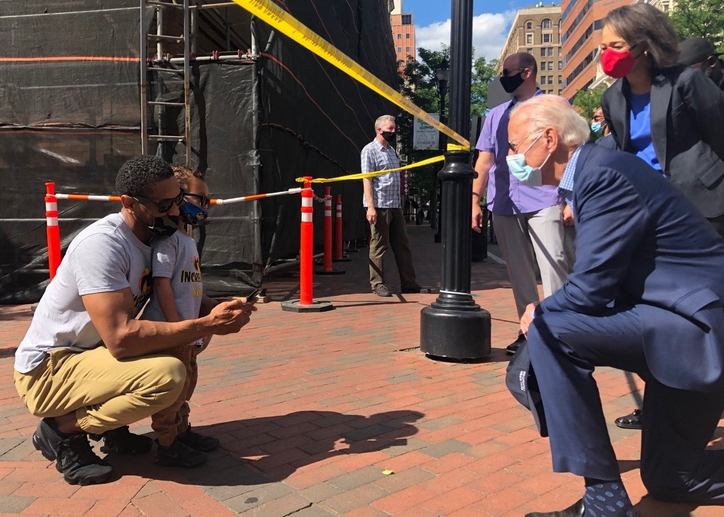The Democrats and Democracy: This Election is About Values, Not Ideology

Lisa Van Dusen/For The Hill Times
June 20, 2020
(Policy re-post of a piece originally published on June 12, 2019)
There is nothing Donald Trump—and the interests who have an existential stake in his unlikely political longevity—would enjoy more than watching the Democrats devour each other on the road to 2020.
The current field of 24 candidates makes this primary campaign potentially the largest Democratic circular firing squad since the fateful 1968 Chicago convention. This race is unfolding in an environment of hyper-tactical politics that includes the narrative-bending variables of weaponized proxies, triangulated rat-f**ks, pointedly-timed IED content, and the lunatic, oxygen-sucking colour commentary of the nominally Republican incumbent. The chances of this process degenerating into a circus are nearly as high as they were in 2016, with the partial exposure of the distorting elements of that cycle having helped, somewhat, to mitigate a disaster.
One of the by-products of our hyperconnected existence is that the perpetual stream of incoming headlines clouds perspective. When you’re constantly processing new information based on 100 interpretations of what happened 10 minutes ago, or this morning, or yesterday afternoon, it’s harder to consider events in the context of the past 10, 20, or 50 years.
The fact is that the Democratic Party is not defined by its most viral voices, its most vocal detractors, or its most relentless opportunists. Before the preposterous, disruptive presidency of Donald Trump turned the White House into a conveyor belt of lizard-brain triggers with a tachometer permanently set to tilt, it was occupied by Barack Obama, a president who made rational decisions, took advice from experts, considered the well-being of his fellow citizens (Democrats and Republicans) and those of other countries above his own and, for that matter, those of brutal dictators. He didn’t troll Bette Midler while on foreign soil marking the 75th anniversary of D-Day. And, he won the first back-to-back popular vote majorities for the Democrats since FDR.
That wasn’t 20 years ago or even 10 years ago. It was as recent as Lemonade and the fifth season of Game of Thrones. Only it wasn’t Game of Thrones because the party was generally united. If you want a reminder of that not-so-long-ago era and a window on the soul of the Democratic Party, watch the clips from the 2012 Democratic convention in Charlotte; the America-reflecting diversity of both the crowd and the speakers, the uplifting, inclusive messaging, the reassuring absence of Dirty Harry having an imaginary conversation with an IKEA Volfgang barstool on live television. It wasn’t some gossamer, pre-Trumpian Utopia. It was reality, before reality got replaced by a reality show.
Which is really the major issue in this campaign. Nothing else will get fixed—not climate change, not technological disruption, not health care, and certainly not economic inequality—until American democracy is fixed.
The Fourth Industrial Revolution has been hijacked by interests who saw the transformative, lucrative opportunities for networked corruption (the corrupt mortgage-driven financial cataclysm, the corrupt pharma-driven opioid epidemic, Facebook), covert outcome manipulation (through unprecedented surveillance, hacking and misinformation), and economic disruption through the gutting of business models and glutting of content markets (in journalism and entertainment, for starters). Rights are under attack, with abortion rights being the beachhead of that effort because reproductive rights—which come pre-polarizing and fraught with easily leveraged cultural, religious and gender cargo—are low-hanging fruit.
This U.S. election cycle isn’t about ideology; it’s about values. The Democrats can beat Donald Trump by offering a combination of the solutions of the future and the politics of not so much of the past as of the best—past and present—of their own party.
Lisa Van Dusen is associate editor of Policy Magazine and a columnist for The Hill Times. She was Washington bureau chief for Sun Media, international writer for Peter Jennings at ABC News, and an editor at AP in New York and UPI in Washington.
